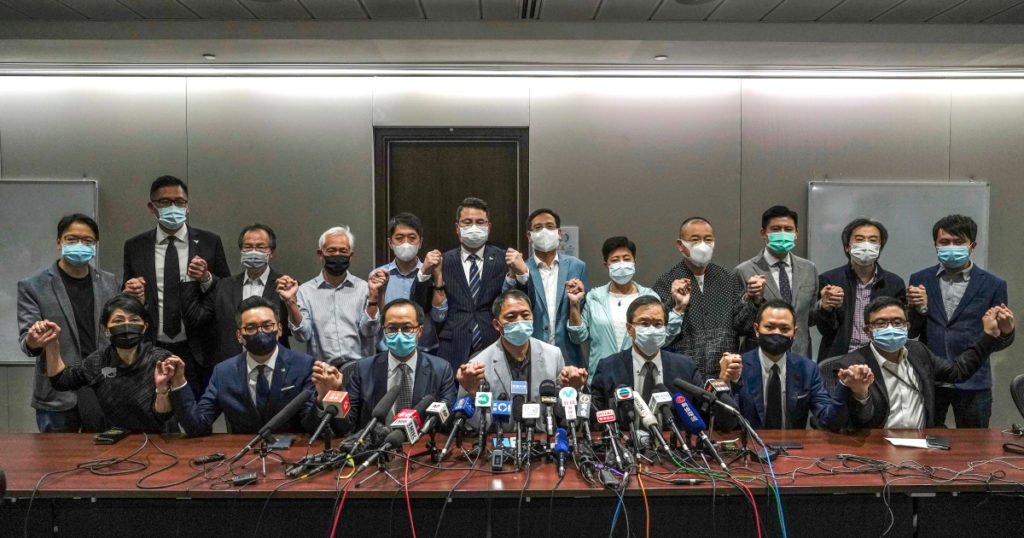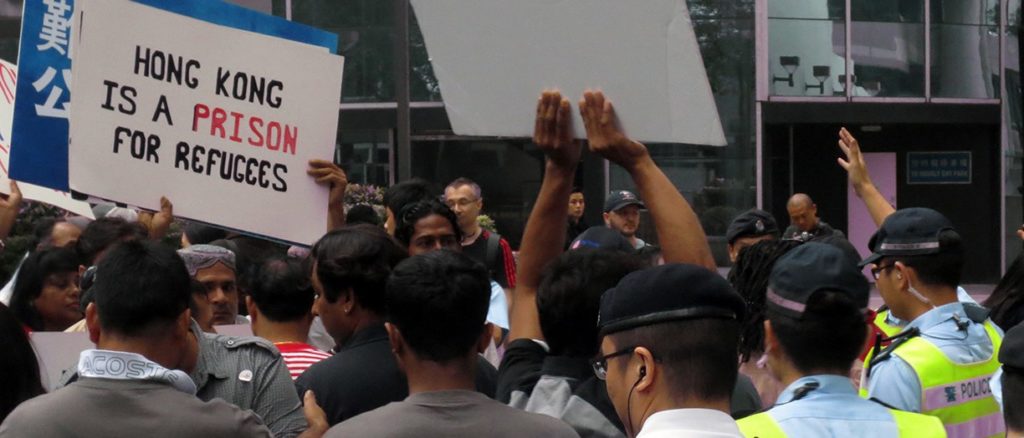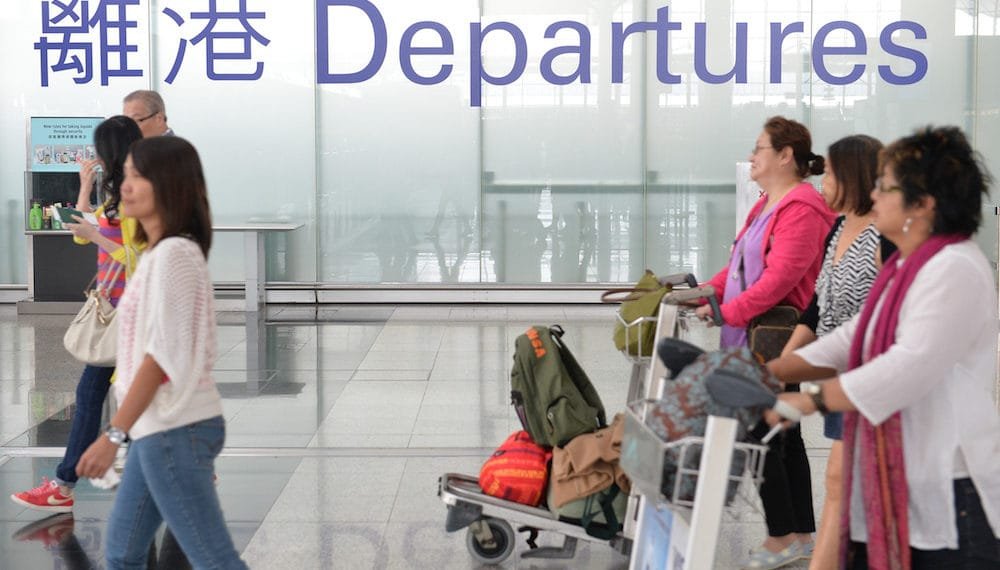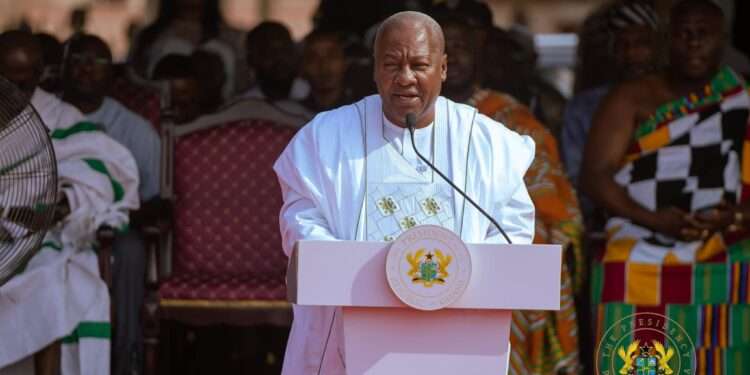Hong Kong has passed a new immigration law which lawyers, diplomats and right groups fear will give authorities;unlimited powers,;to prevent residents and others from entering or leaving the Chinese-ruled city.
The immigration bill sailed through Hong Kong’s parliament, which is now devoid of opposition figures, after a crackdown on democracy.
Activists, lawyers and some business figures in the country sounded the alarm over provisions in the law. Their concerns include one provision which allows the city’s immigration chief to,;without a court order, bar anyone from entering or leaving Hong Kong.
The Hong Kong Bar Association (HKBA), in a statement stated;that the bill’s wording gave “apparently unfettered power” to the immigration director. The association also noted that the bill offered no explanation as to why such powers;were necessary, or how they would be used. It added that there was no limit on the duration of any travel ban, nor any safeguards against abuse.

Separately, labour activists and legal critics said the legislature had ignored concerns about the law’s broad wording. They indicated that they feared exit bans, used in China, could now be used in Hong Kong.
Michael Vidler, a lawyer with Vidler & Co Solicitors noted that, “What is concerning is that in hastily pushing this bill forward, the government has chosen to ignore civil society groups that have flagged legitimate concerns“.
“When they have this power, absolute power, you don’t know who they will use it on,” Barrister Chow Hang-tung, from the pro-democracy Hong Kong Alliance added.
The immigration bill received 39 votes in favour and two against in the vote. It was;passed;shortly after lawmakers approved a budget in record time, with just one opposing vote.
Concerns about immigration law ‘complete nonsense’
Hong Kong’s government has dismissed concerns raised about the new immigration law as “complete nonsense”. The government explained that the law merely aims to “screen undocumented migrants at source”, amid a backlog of asylum applications and does not affect constitutional rights of free movement.
Government officials also revealed that there are currently 13,000 refugee claimants in Hong Kong and that it wants to tackle the backlog.

However, legal experts argued that the wording of the bill does not limit the government’s powers to those arriving in the territory or to immigrants. They also noted that it could also be;used like “exit bans” against people trying to leave Hong Kong.
“Exit bans” are often used in China against activists and business figures who challenge the authorities. An example is Richard O’Halloran, an Irish national who has been prevented from leaving Shanghai for two years because of a legal dispute involving the Chinese owner of the Dublin-based company he works for.
Last year, a group of US senators also estimated at least twenty-four US citizens had been prevented from leaving China in recent years and face regular surveillance and harassment by the authorities.
China has denied all accusations and maintained that no foreign nationals are under threat of arbitrary detention or exit bans.
Read Also: CPF calls for a halt to deforestation





















